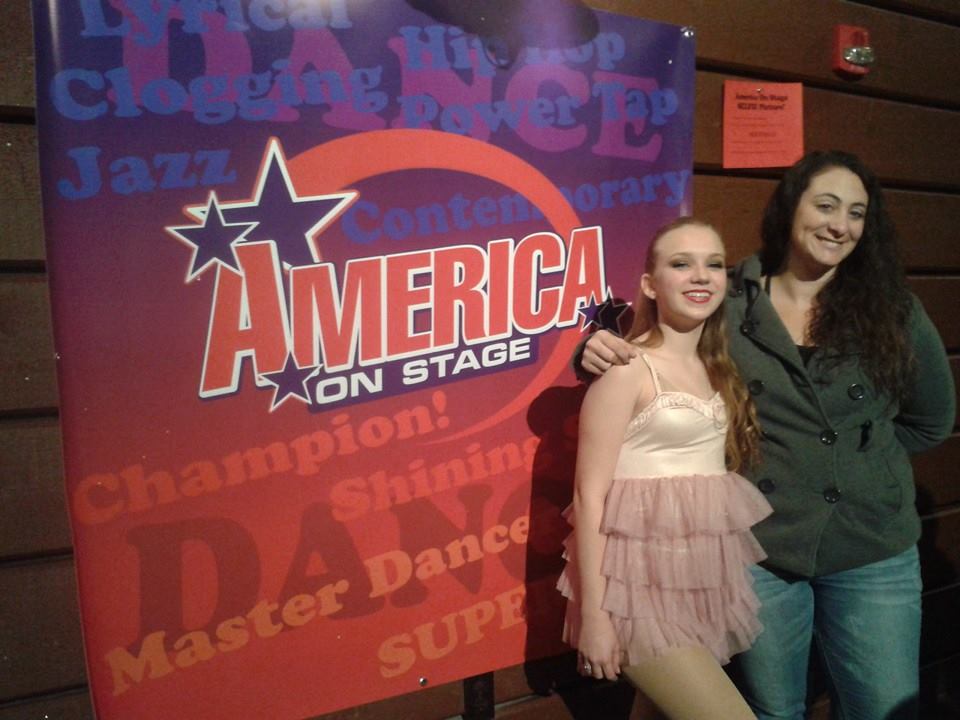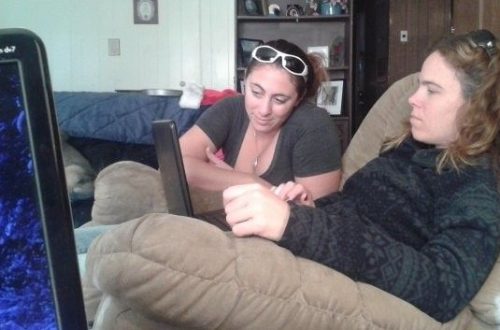
The World of Competitive Dance
At a dance competition this weekend I was able to observe hundreds of talented young dancers bringing their heart and soul to the stage, all in the name of dance. After 25 years of being in the dance world, I am ready to just kick back and watch the show. I don’t have to choreograph, plan, buy, deal, negotiate, or be anywhere at 7:00 am until midnight. No more stage lights, fancy makeup, overpriced costumes, messed-up lodging reservations, or getting lost in the big cities trying to find the venue. It isn’t a competition unless I get everyone lost at least once.
I wouldn’t say I’ve lost my love for dance, but if I were to list the worst of the worst dance experiences throughout the years, it would sound a bit like the sitcom “Dance Moms”. There is a level of truth to that show, and each of us who is in that world understands – probably more than we would want to comment on.
As I sat watching last night’s solo performances in the jazz category, I found myself having a “dance mom moment”. Who am I fooling? I will forever be a dance mom. I enjoy the sport and the art. After nearly 25 years, it’s part of who I am.
I had a dance mom moment
How this family ended up in the dance world was through the doors of education and the school of hard knocks. A lot of money was invested in dance education, and I have to say I don’t regret spending a penny of it. It was well worth the journey. If you will indulge me, I would like to share a little information about that educational journey.
INEXPERIENCE VS. EXPERIENCE
Be careful when you choose who you will dance with and where. Also, know something about the different types of dance degrees available, and how they compare against other degrees, or up against an experienced dancer/instructor.
Someone with a two-year degree in dance (associate level), has basically taken pre-dance classes. “PRE”…or the general ed’s of dance. They have only taken the pre-classes that might help them gain entry into a bachelors (BFA) or master’s (MFA) program. A two-year degree is no guarantee you will make it into a real dance program. Most professional schools of dance require a tryout/audition (UofU’s modern department link), as well as a host of other preparatory physical skills.
A number of two-year programs really do not offer all the prerequisite skills that will be necessary to enter into a four-year and/or major university dance program. Two-year programs offer very little real technical dance experience above the entry level.
You would be better off going to a university, auditioning, and getting into a real program. Auditioning is the only way in, and if you do not have the necessary technical dancing skills, the competition will be overwhelming to you.
To better understand, think of dance levels as categories, starting with beginner, then intermediate, advanced, elite/varsity, and then pro. A two-year course is pretty much beginner to intermediate. I doubt any instructor at a two-year institute would lead their students to believe they were anything above that level. You don’t see a lot of two years dancing on college-level dance teams and performing before large audiences of 40,000 or 50,000 people. The first two years are the beginner years, and they may perform at recitals.
Be careful, don’t let someone lead you into something that will cause you to embarrass yourself. Chances are, they have political and/or money motives in mind, and not your best interests.
Chances are they have political and/or money motives in mind, and not your best interests
A four year bachelors of Fine Arts (BFA)will give you a much better understanding of what will be necessary for you to learn as you embrace the dance profession. A master’s degree (MA) (MFA) is a specialty degree. To teach at a university, a master’s degree or higher is required for undergraduate courses. Graduate-level courses are generally taught by instructors who have doctoral degrees. You will probably train with several tenure- track associate professors, who have both teaching and research experience at the graduate level. Full tenured professors have PhDs, which qualify them to hold the position of Dean.
A professional or semi-professional dancer may have a combination of dance experience and/or academic training. Or, they may never have gone to school, but rather learned their craft from years of experience on the competition floor, and studio training well beyond basics. Participants of SYTYCD are a good example of studio-trained and street competition dancers.

Semi-professional and professional dancers generally have a dance portfolio or dance history that they can present. It is a chronological history of events, trainings, areas of expertise, and current status, be that in training, judging, and/or teaching. Many have a list of accomplishments and/or published works.
‘Fake or for Real?
Be careful of the dance institutions that make promises they really can’t deliver on. The degrees can amount to no more than a certificate that is non-transferable. That’s another aspect to look at. See if they are an accredited facility of higher education. Meaning….their credits will transfer to other colleges or universities. You will be surprised at how many do not. Two-year colleges lack a lot of credibility in this area.
Two-year graduates might be able to skim by working at a studio that doesn’t really care about what their academic training is, or with directors that just want to control their own environments, and don’t want or need any competition that makes them look “different”.
Basically, no experience is necessary to own a studio if you want to. But to be good – that takes skill – a skill that is recognized by the community and dancers.

Experience is what matters. Dance is an art, and dance is a sport; you can’t learn technique with your head always in a book. It takes years to develop skill and knowledge. You might memorize terminology and be able to recite after reading a book, but you would do better to practice what you preach.
Be warned if you are trying to fabricate your way up – those dancers and instructors who are highly involved in dance can spot a fake a mile away. They probably won’t tolerate your behavior.
Your claims will be under the microscope. It DOES matter in the dance community what you do, or don’t do. When people pay money for you to train their children, and you can’t even teach them to do a simple turn correctly or teach them to point their toes, you let them down.
Getting serious
If you are serious about setting your life ambitions to be a dancer, you have options. One, you can go the university route, or two, you can develop a lifetime of dance performance through precision studio training and upper-level competitions. A lot depends on the style(s) of dance you wish to perform.
Dancing on a university team is also a good choice to help you develop your skills alongside dancers your own age and of equal ability. Many pro’s and semi-pro dancers dance(d) on university teams. It’s a whole different level of expertise that complements your former training, be that in ballet, contemporary, hip hop, modern, or jazz.
Learning to dance with a partner is a challenge for many. Do it!
Serious dancers know when another dancer is their senior, and they acknowledge that. Equal dancers also acknowledge the level of each other. When you dance with equal-level dancers, you really are a team. You recognize each other and respect each other. That is the way it should be. Yes, there is competition – but it is a recognizable merit of skill.
Deciding where you dance is as simple as acknowledging your own level and being honest about yourself.
What’s out there for you?
What is available for teachers, choreographers, directors, cheerleaders, experienced coaches, ballerinas, and hip hop artists?
There are so many wonderful programs available for the person who wants more of a professional background rather than a recreational one.
Many top organizations offer franchises and specialty training. Master’s level classes, memberships, and more.
~” A great dancer is not great because of
their technique, they are great because of
their passion.” Author: Martha Gram
https://www.facebook.com/cricketsdance/posts/873482699339262

You May Also Like

Creating Innovative Students
July 12, 2023
Life and writing – beautiful metaphors
November 28, 2022